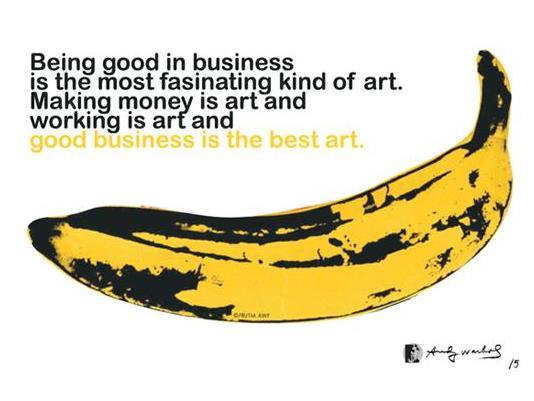The career of an artist is not dissimilar to that of an entrepreneur. Self-orientated, sometimes self-taught, boundary-less, and resourceful, like entrepreneurs, artists wanting to sustain themselves through their craft need to seek funding, pitch and market their work, and create a living where a career path is yet to be carved.
As the myth of the artist being ‘right-brained’ and the perception of creative equating disorganised is busted, a new definition of an artist as a collaborator, innovator and ‘artpreneur’ emerges. Motivated by a desire to live sustainably from their art, an artpreneur creates a business that revolves around their art, or employs business tactics to succeed with their art.
A combination of a changing arts economy and the sheer volume of arts graduates means that more than ever, artists need to pursue portfolio careers and consider themselves artrepreneurs.
It would seem many already do. The Bureau of Labour Statistics highlighted that visual, literary and performing artists are generally between three and five times more likely to be self-employed or working on a freelance basis than workers in other occupations.
Founder of a Sydney singing studio Kathleen Connell told ArtsHub that despite artists already viewing themselves as self-employed or a small business, there is a lack of training in universities to prepare artists with business skills.
‘I think there is a lot of space for people to learn entrepreneurship and business administration skills, especially in the music field and other arts fields.’
Not apples and oranges
Connell pointed out that the reason there may be hesitation to teach artrepreneurship in universities is that artists are generally driven by creative fulfilment, rather than profit.





